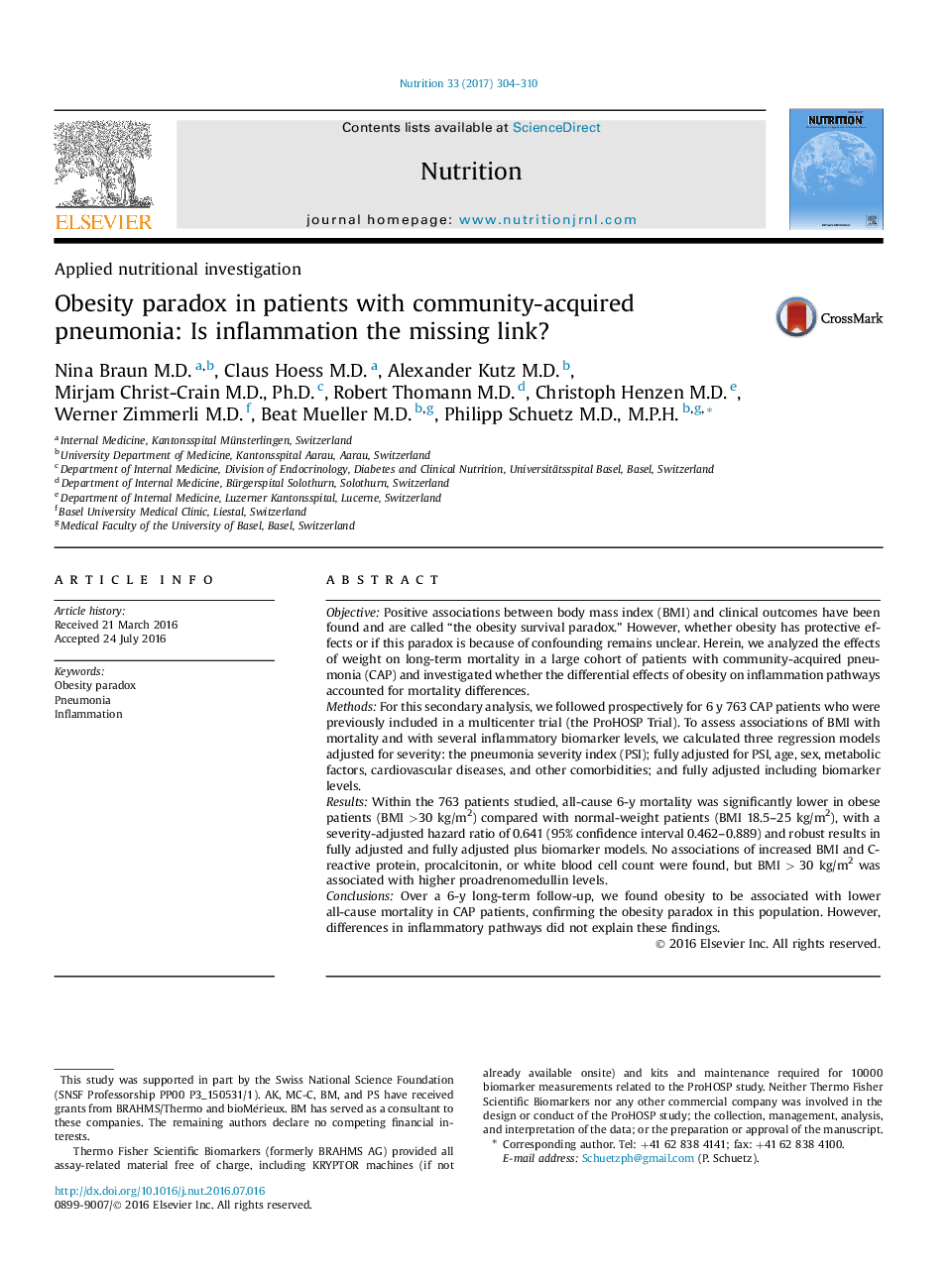| Article ID | Journal | Published Year | Pages | File Type |
|---|---|---|---|---|
| 5656957 | Nutrition | 2017 | 7 Pages |
â¢Obesity is generally considered to be a major risk factor for a number of diseases; however, in certain patient populations, it is paradoxically associated with improved survival in a phenomenon called the “obesity survival paradox.”â¢We were able to show the obesity paradox in our cohort of community-acquired pneumonia patients, in whom 6-y survival was significantly improved in those who were obese.â¢There is no association between obesity and inflammation biomarkers that explains this paradox.â¢Further studies are needed to define the underlying mechanism of the obesity paradox.
ObjectivePositive associations between body mass index (BMI) and clinical outcomes have been found and are called “the obesity survival paradox.” However, whether obesity has protective effects or if this paradox is because of confounding remains unclear. Herein, we analyzed the effects of weight on long-term mortality in a large cohort of patients with community-acquired pneumonia (CAP) and investigated whether the differential effects of obesity on inflammation pathways accounted for mortality differences.MethodsFor this secondary analysis, we followed prospectively for 6Â y 763 CAP patients who were previously included in a multicenter trial (the ProHOSP Trial). To assess associations of BMI with mortality and with several inflammatory biomarker levels, we calculated three regression models adjusted for severity: the pneumonia severity index (PSI); fully adjusted for PSI, age, sex, metabolic factors, cardiovascular diseases, and other comorbidities; and fully adjusted including biomarker levels.ResultsWithin the 763 patients studied, all-cause 6-y mortality was significantly lower in obese patients (BMI >30Â kg/m2) compared with normal-weight patients (BMI 18.5-25Â kg/m2), with a severity-adjusted hazard ratio of 0.641 (95% confidence interval 0.462-0.889) and robust results in fully adjusted and fully adjusted plus biomarker models. No associations of increased BMI and C-reactive protein, procalcitonin, or white blood cell count were found, but BMI > 30Â kg/m2 was associated with higher proadrenomedullin levels.ConclusionsOver a 6-y long-term follow-up, we found obesity to be associated with lower all-cause mortality in CAP patients, confirming the obesity paradox in this population. However, differences in inflammatory pathways did not explain these findings.
